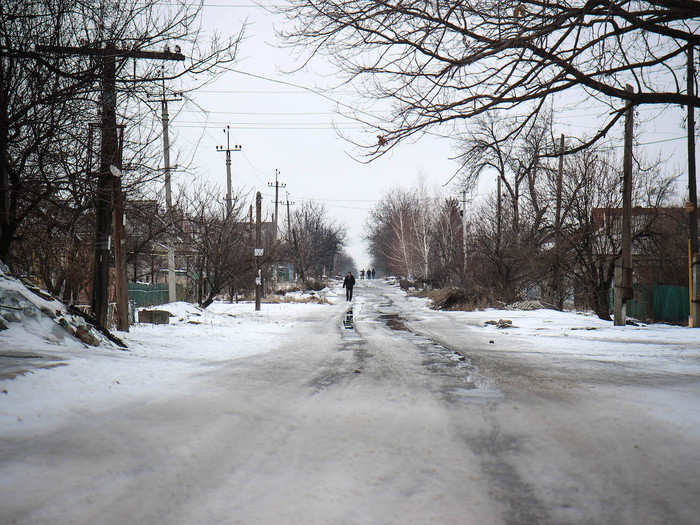Meet the Ukrainian children who no longer fear bombs and bullets after more than 3 years of war
The population of Marinka has dropped from about 10,000 to 5,000 since the war began — and it's filled with shelled buildings like the one below.

This is the school in Marinka, which is guarded by armed Ukrainian soldiers.
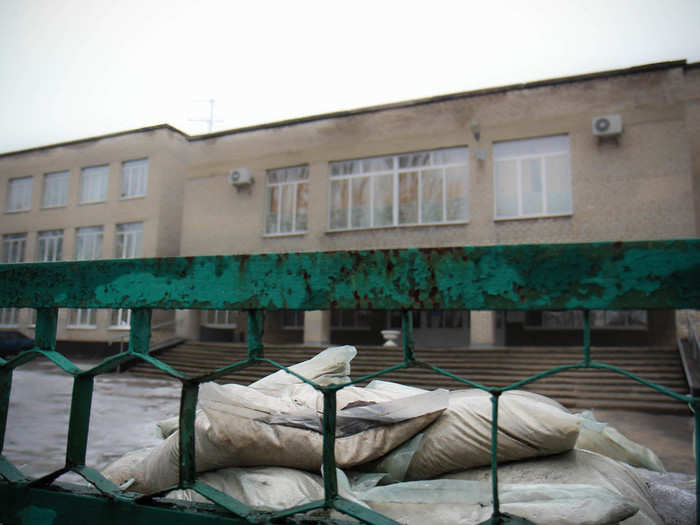
The school didn't have heat in March and was really cold, and the windows were lined with sandbags.
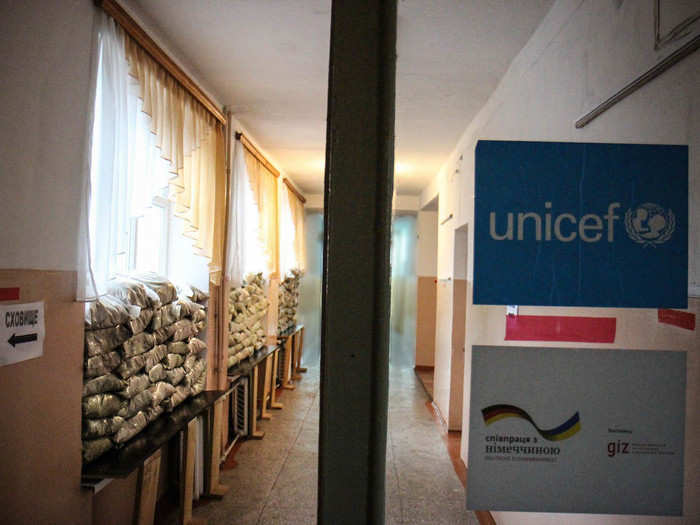
This is Mila, the school principal. Sandbags line the windows behind her desk too.
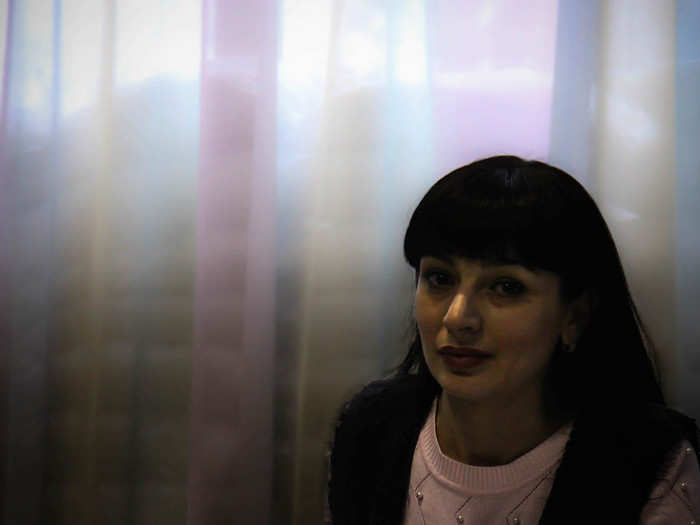
Mila said there are about 160 kids in the school, and that four children have died since the war began.
One child was killed along with his grandmother when a shell hit their home. Another died in a mysterious fire, and two died from cancer, which Marinka residents attribute to stress from the war.
The shelling occurs mostly at night, but can come at anytime, Mila said. Sometimes it gets so close to the school during the day that it shakes the foundation, forcing everyone to hide in the basement.
This has happened at least 20 times in the last two years.
This video gives you a sense of what Marinka often sounds like at night.

The fighting in Marinka, like many places along the front lines, is a slow burn.
There might be shelling and shooting for a few hours or a day, but then it will die down for a similar amount of time.
The result is a life of anxiety, one where residents don't know when or where the next shell will fall.
"We dread the quiet times," one woman from Marinka told the New York Times through a translator in June. "That's when you know they're saving up for something really heavy."
What night sounds like in frontline Mariyinka, eastern Ukraine. (sound on) via @RFERL pic.twitter.com/EJDSrTmmwH
— Christopher Miller (@ChristopherJM) July 3, 2017
Mila said one time they were hiding in the basement from shelling and "waiting for parents to take each child from school ... [when] one child said 'don't call my family because they can be killed. I prefer to go on my own. It's better for me to be killed than my parents.'"
![Mila said one time they were hiding in the basement from shelling and "waiting for parents to take each child from school ... [when] one child said](https://staticbiassets.in/thumb/msid-62138630,width-700,height-525,imgsize-281931/mila-said-one-time-they-were-hiding-in-the-basementfrom-shelling-and-waiting-for-parents-to-take-each-child-from-school-when-one-child-said-dont-call-my-family-because-they-can-be-killed-i-prefer-to-go-on-my-own-its-better-for-me-to-be-killed-than-my-parents-.jpg)
The "children don’t care about their safety anymore," Mila said. "They got so adjusted to the situation ... and they just don't care that they could get hurt."
Mila also showed us this bullet, which was fired through one of the school windows. She keeps it on the desk in her office.
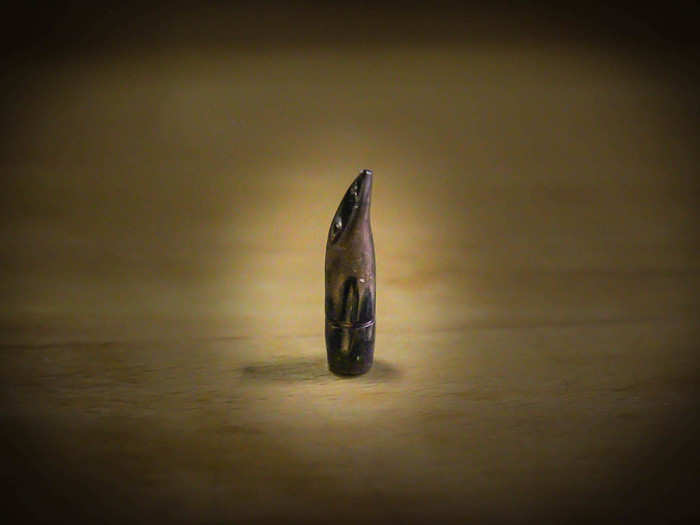
This is 7-year-old Sasha.
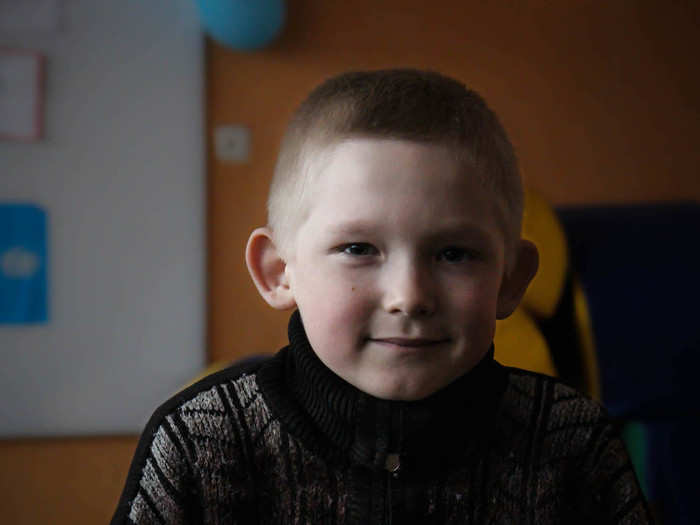
In 2016, Sasha was playing at home in his room when a shell landed on it, damaging the roof. Luckily, no one was injured.
But Sasha said he wasn't scared. When asked why, the translator said "he doesn't know."
"It's the problem that [Mila] was talking about," the translator said.
Sasha said he hears shelling on average three time a night, and that he wants to be a taxi driver when he grows up.
This is 7-year-old Gaffar.
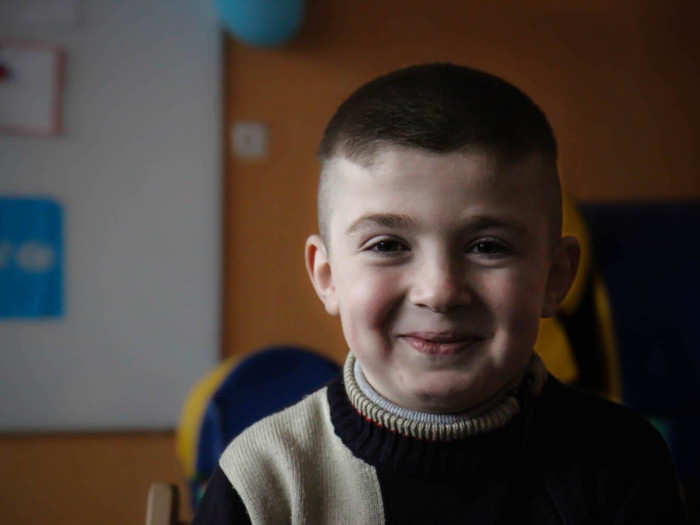
During one night in the Summer of 2016, Gaffar woke up to a shell landing outside his home, sending shrapnel through the windows.
Julia, Gaffar's mom, said the garage and basement were destroyed, and the windows had to be covered in plastic.
But Gaffar expressed little fear.
"[The children] were afraid very much in the beginning, but they got used to living with it," Julia said through the translator.
This is 12-year-old Liza.
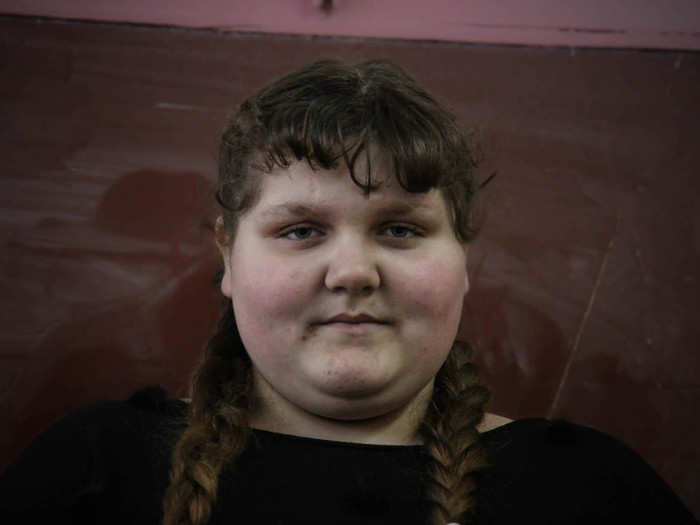
Liza lives with her mother, disabled grandfather, and disabled uncle in one of the most dangerous streets in Marinka.
In June 2014, a bomb dropped near her house, and her mom was hit with 7 pieces of shrapnel in the chest, legs, and heal.
"There was a lot of blood, and she fell on the ground and started screaming," Liza said.
With no phone, they were forced to carry her mom to the basement. They then waited for the bombing to stop for two hours before Liza rode her bike to a phone to call an ambulance.
Liza said the only time she gets scared is when the shelling lands really close.
This is seven year-old Valeria, and 10-year old Veronika.
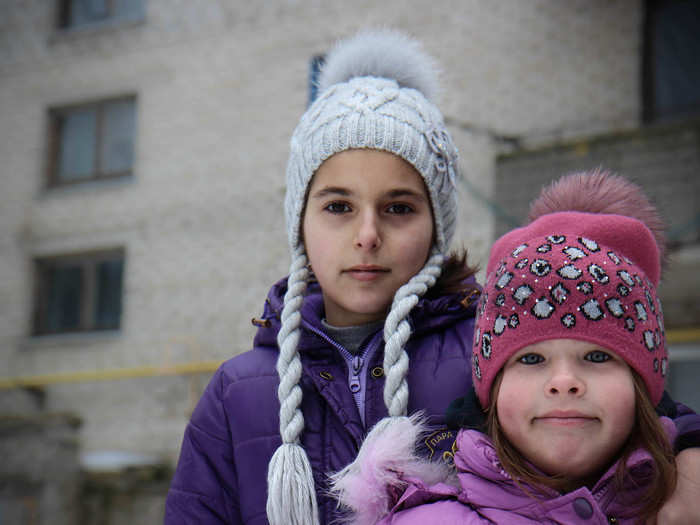
They live in the apartment complex in the background, which has shell holes and no running water.
Like Liza, they said they are rarely afraid — unless the shelling gets so close that they have to run to the basement.
"They got used to [the shelling]," the translator said "and they are not afraid."
They said they just don't understand why it's happening.
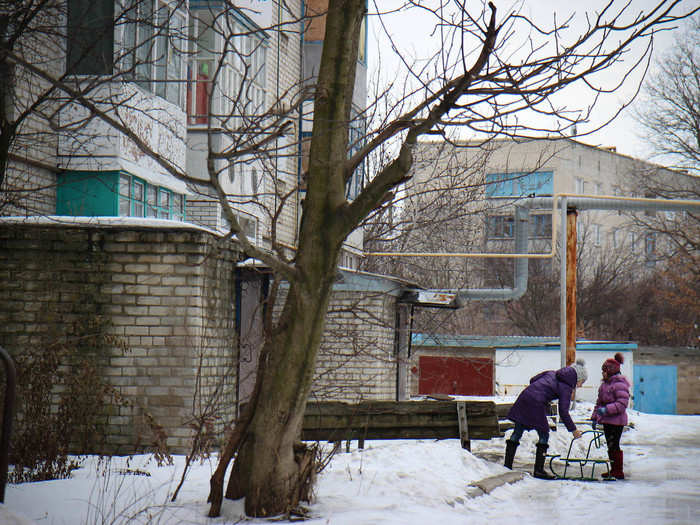
Popular Right Now
Popular Keywords
Advertisement
